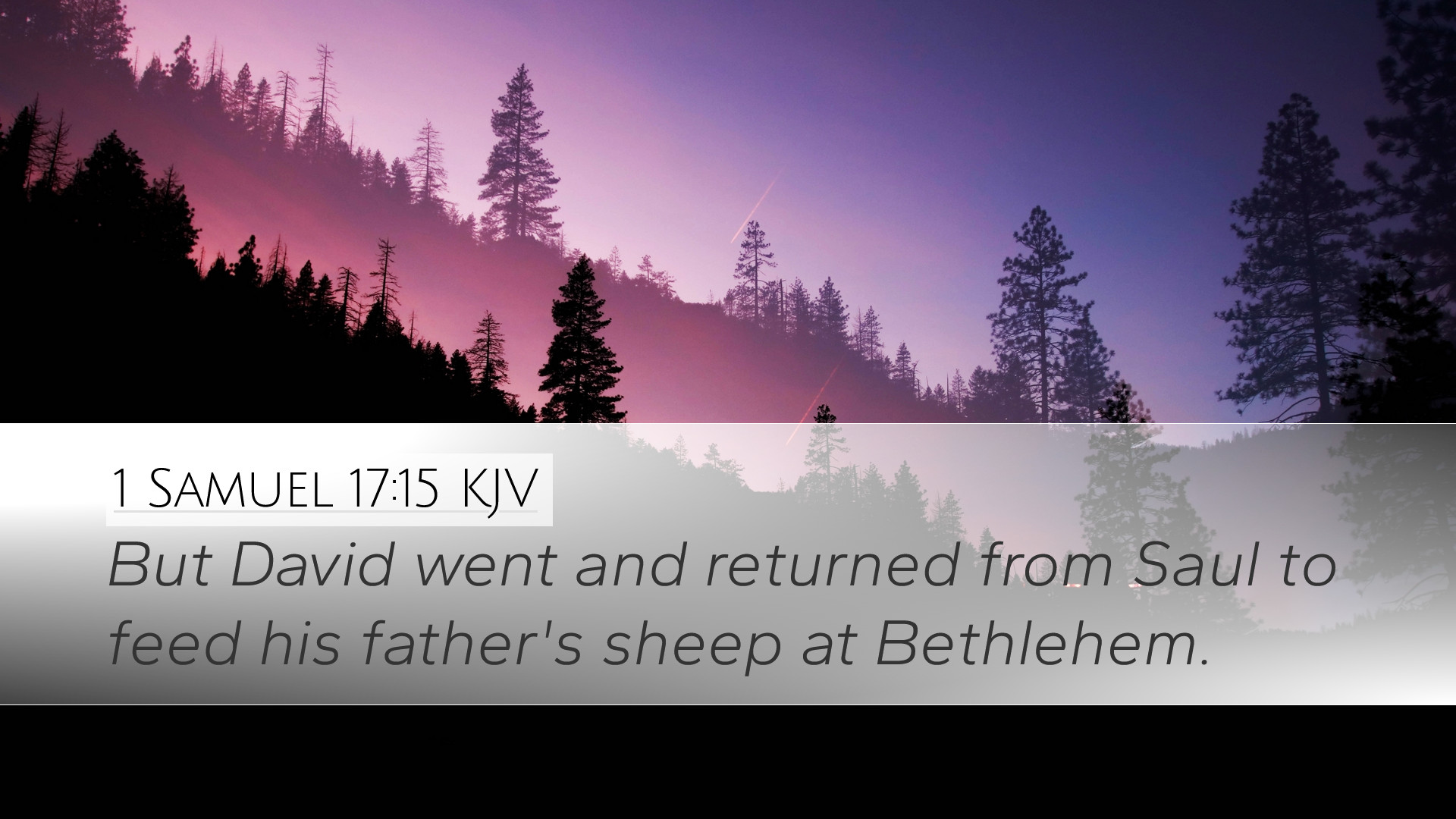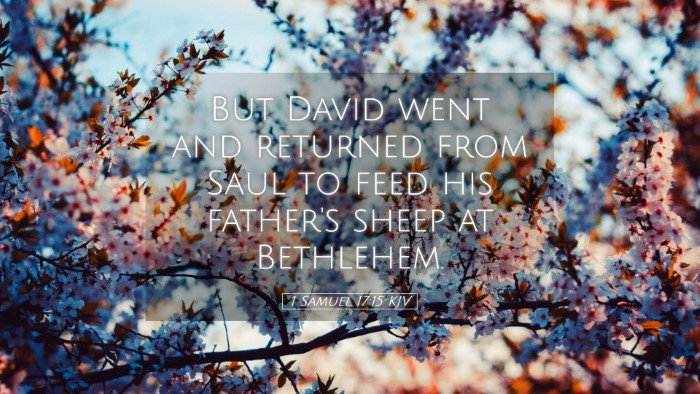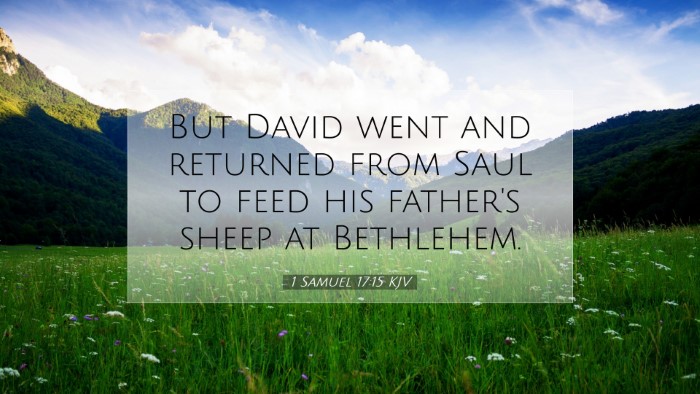Commentary on 1 Samuel 17:15
Verse: 1 Samuel 17:15: "But David went and returned from Saul to feed his father's sheep at Bethlehem."
Introduction
This verse marks a pivotal moment in the narrative of David and illustrates the profound themes of faith, humility, and the providence of God. Several public domain commentaries provide insights that can deepen our understanding of this passage, particularly in the context of David’s early life and his eventual anointing as king.
Contextual Overview
Before delving into the commentary, it is essential to observe the broader context of 1 Samuel 17. This chapter is well-known for the iconic battle between David and Goliath. However, it also reveals much about David's character and his life before his rise to prominence. David's return to shepherding underlines his humble beginnings and sets the stage for his future leadership.
Insights from Prominent Commentaries
Matthew Henry's Commentary
Matthew Henry notes that David was favored by God and, despite being anointed, did not immediately seek a throne. Instead, he returned to his humble service of shepherding. This emphasizes a crucial Biblical principle: those who are called to leadership must first cultivate humility and faithfulness in smaller roles. Henry adds that David’s time in the fields was not a retreat from God’s purpose but a preparation for his future responsibilities. In essence, God often prepares His leaders in obscurity and through humble tasks.
Albert Barnes' Commentary
Albert Barnes discusses the significance of David's actions in this verse, pointing out that his return to sheep herding illustrates his dedication to his familial duties. Barnes claims that this reflects purity of heart and the spirit of service, aligning with God’s values. He suggests that true greatness in God's Kingdom often comes through routine faithfulness rather than conspicuous displays of power or authority. Furthermore, Barnes suggests that David's experience as a shepherd provided him with unique skills, such as leadership and courage, that would serve him well when facing Goliath.
Adam Clarke's Commentary
Adam Clarke emphasizes that David's choice to tend to his father's sheep rather than pursuing personal glory illustrates obedience and loyalty. Clarke notes that this humble labor was not wasted; rather, it equipped David spiritually and practically for the challenges that lay ahead. Clarke writes: "The obscurity of David’s position served to demonstrate that the true preparation for leadership occurs in the everyday responsibilities." Moreover, he highlights that being a shepherd not only relates to physical care but also foreshadows David's role as a shepherd king, ruling with care and justice.
Thematic Reflections
The verse encourages several deep theological reflections:
- Humility: The state of returning to shepherding after being anointed signifies a remarkable humility that is foundational to Christian leadership.
- Preparation: David’s shepherding experience is crucial; it serves as a metaphor for the preparation God undertakes in the lives of those He calls.
- Faithfulness in the Ordinary: This verse highlights the virtue of being faithful in everyday tasks, reinforcing that no task is too trivial in God's eyes.
Practical Applications
For pastors, students, theologians, and Bible scholars, there are several applications to consider from this passage:
- Embrace the Ordinary: Recognize the significance of everyday tasks and the integrity brought into them.
- Trust God's Timing: Understand that God prepares His servants over time, often in obscurity.
- Maintain Humility: Reflect on the importance of humility, particularly for those in positions of leadership.
Conclusion
1 Samuel 17:15, while a simple narrative detail, conveys profound truths that resonate with the core message of God's working in the lives of His chosen leaders. David’s journey underscores the importance of faithfulness, obedience, and preparation in the faithful believer's life. As those engaged in ministry and scholarship study this verse, let it serve as a reminder of the Divine orchestration that works in the background, leading to significant developments in God’s timeline.


